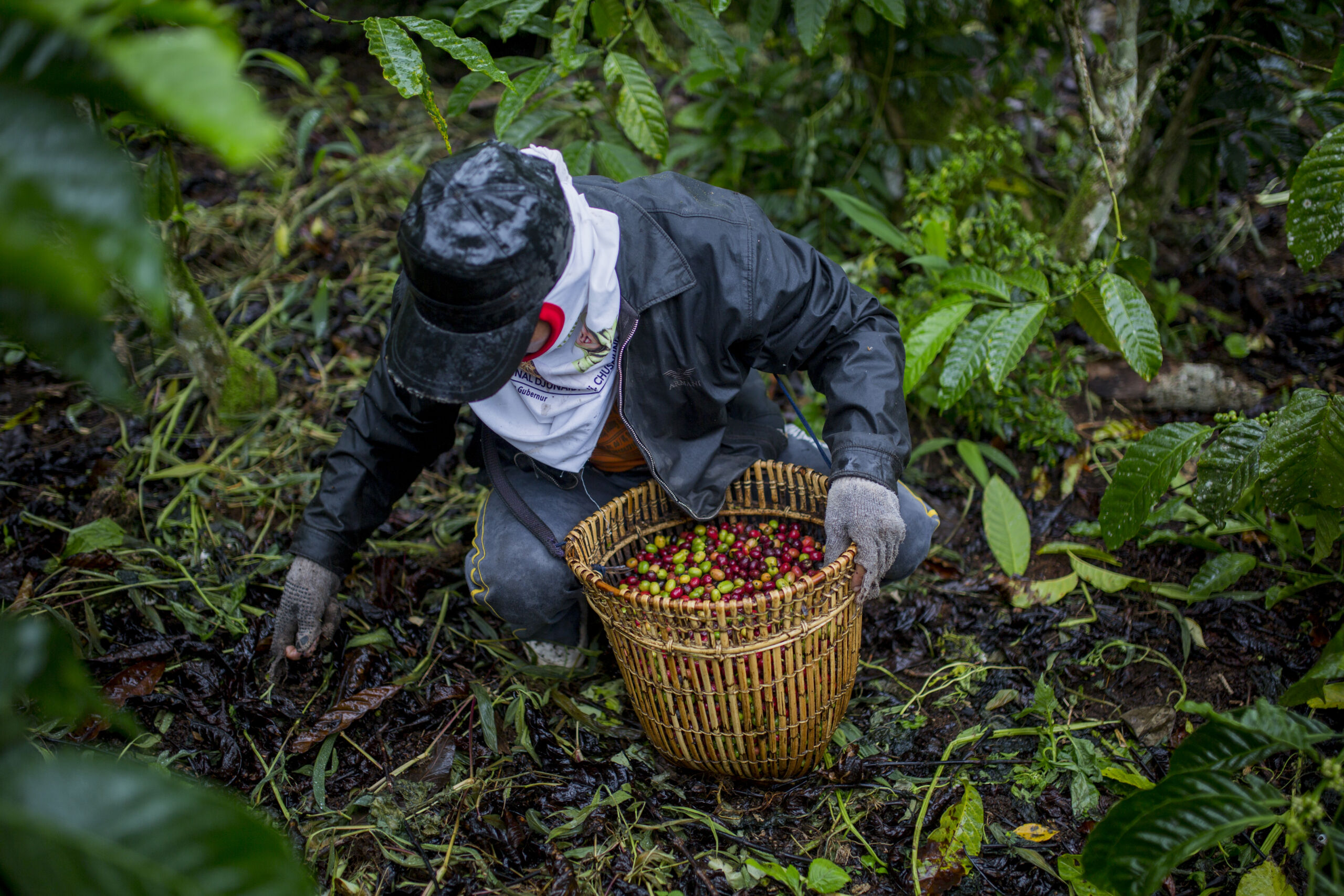
“Sharing information, sharing knowledge and learnings is a first step to foster industry collaboration to decarbonize coffee production and to expand precompetitive collaboration within our industry and in other regions.”
This was the sentiment shared by Gelkha Butrago, Director Programs and Corporate Partnerships at GCP as industry experts convened to discuss regenerative practices and innovation in the coffee sector as part of the second dialogue of a seven-part series on low-carbon coffee production in Southeast Asia. The series, Sustainable Coffee Dialogues, is co-hosted by the United States Agency for International Development (USAID) through USAID Green Invest Asia and the Global Coffee Platform.
Experts ranging from soil microbiologists to agronomists and supply chain managers debated what regenerative coffee systems should look like, the feasibility for smallholder coffee farmers to transition from current production systems that are intensive monoculture (only coffee crop planted) to more “regenerative” ones that increase productivity, biodiversity, and carbon stocks, and how to mitigate any short-term trade-offs as farmers diversify their plantings.
Regenerative agriculture, also referred to as ecological farming or nature-based solutions that address climate change, aims to restore what has been depleted from the land, said Barry Flaming, USAID Green Invest Asia’s agriculture and forestry advisor.
Barry Flaming, USAID Green Invest Asia advisor – agriculture and forestry
The planet’s agricultural land has become so depleted that the United Nations predicts there are only about 60 growing seasons left until the world’s soil can no longer grow crops.
Rebuilding soil organic matter and restoring degraded soil biodiversity through agriculture practices like intercropping (planting of different types of crops/trees alongside each other in one field), cover crops, reducing tillage, and optimizing the use of chemical fertilizers can all help improve long-term productivity and reduce the release of greenhouse gas emissions into a warming atmosphere.
“As a company, like any supply chain company, we look for four elements: quantity, quality, consistency of supply…and increasingly important is the [environmental] footprint,” said Piet van Asten, Head of Sustainable Production Systems- Coffee for ofi, formerly known as Olam Food Ingredients.“When you diversify your cropping system, you also diversify your ecosystem.”
Soil health and soil fertility was a topic of interest of industry experts, some of whom. are focusing on soil interventions to cut greenhouse gas emissions. Enveritas shared results from a baseline study on fertilizer use in Vietnam, the world’s second largest coffee producer, that was conducted with coffee corporates JDE Peet’s, Nestlé and J.M. Smucker Co. to analyze “hotspots” of chemical fertilizer overuse. Nitrogen fertilizers are one of the largest sources of greenhouse gas emissions from global agricultural production resulting in significant emissions of nitrous oxide, which has approximately 300 times the global warming potential of carbon dioxide.
“The arc of climate action must be long and wide – there’s more than 12 million coffee farms worldwide. The impact of your sustainability decisions, your investments, your actions through your organizations and through the platforms you participate in needs to ripple very far and very wide to influence land use,” said Roopa Karia, Deputy Director of the Regional Environmental Office for USAID in Asia, addressing all the participants. “‘Transformative shift’ can sound very cliched. But as COP26 reminded us, that is what is needed, nothing less than a transformative shift in how industry operates.”
At the latest UN Climate Change Conference (Conference of the Parties), or COP26, more than 100 countries committed to halting and reversing forest loss and land degradation by 2030, including through the implementation and redesign of policies and programs to incentivize sustainable agriculture. The European Union (EU) announced legislation requiring companies to prove that the products they sell, including coffee, have not contributed to deforestation.
Gelkha Buitrago, GCP Director Programs and Corporate Partnerships
For GCP’s Gelkha Buitrago, the importance of these discussions amongst industry actors is clear: “To ensure these global commitments and actions deliver tangible benefits and in the right direction they need to be anchored to the realities in coffee producing countries.”
Buitrago added that a highlight of the dialogue series has been “collaboration over competition” and the work at precompetitive level has been a key ingredient for impact at scale.
When asked what it would take to achieve “transformative” change in the coffee sector, Hannes Zellweger, Managing Director Zurich for SOFIES, a sustainability consulting firm, replied: “A transformative change is always linked to taking risk, also financially. Who will, for example, pay for net-zero [commitment in 2050] within the supply chain? Retailers, roaster, traders, or farmers? I propose to further engage the different actors along the supply chain to [achieve] net-zero, and [if] this can be solved jointly, it would be very impactful for the transformation.”
Upcoming dialogues
The next Sustainable Coffee Dialogue, scheduled for February 10, 2022, will cover climate finance and the low-carbon economy in the coffee industry. For more information, please contact USAID Green Invest Asia’s Partnerships and Sustainability Manager, Nichapat Na Thalang, at nnathalang@pactworld.org, or Global Coffee Platform in Vietnam, Nhung Doan, at nhungdoan@globalcoffeeplatform.org.
All dialogue recordings are available here.
Get in touch
About the organizers
USAID Green Invest Asia partners with agriculture, forestry, and other land use companies in Southeast Asia with proven business models, profit potential, and a demonstrated commitment to environmental and social stewardship. The project provides capital matchmaking, technical and business advisory services, access to financing with preferential terms and/or transaction support, including investment-readiness counsel to help scale business models that can reduce greenhouse gas emissions. USAID Green Invest Asia also works with businesses seeking to “green” their supply chains to improve sourcing and facilitates industry initiatives to achieve sector-wide change.
Global Coffee Platform (GCP) is a unique multi-stakeholder membership association of coffee producers, traders, roasters and retailers, civil society, governments, and donors, united under a common vision to work collectively towards a thriving, sustainable coffee sector for generations to come. GCP Members believe that sustainability is a shared responsibility and collectively seek to address the most critical sustainability challenges to enhance farmers’ economic prosperity, improve well-being, and conserve nature.
GCP does this by convening and aligning relevant coffee stakeholders to advance sustainability, act on local issues, and scale successful sustainability initiatives across the sector. With its members and the GCP Network of Country Platforms in coffee producing countries, including in Vietnam and Indonesia, GCP works on increasing demand and supply of sustainably produced coffee in order to foster origin diversity and the viability of the coffee sector.
